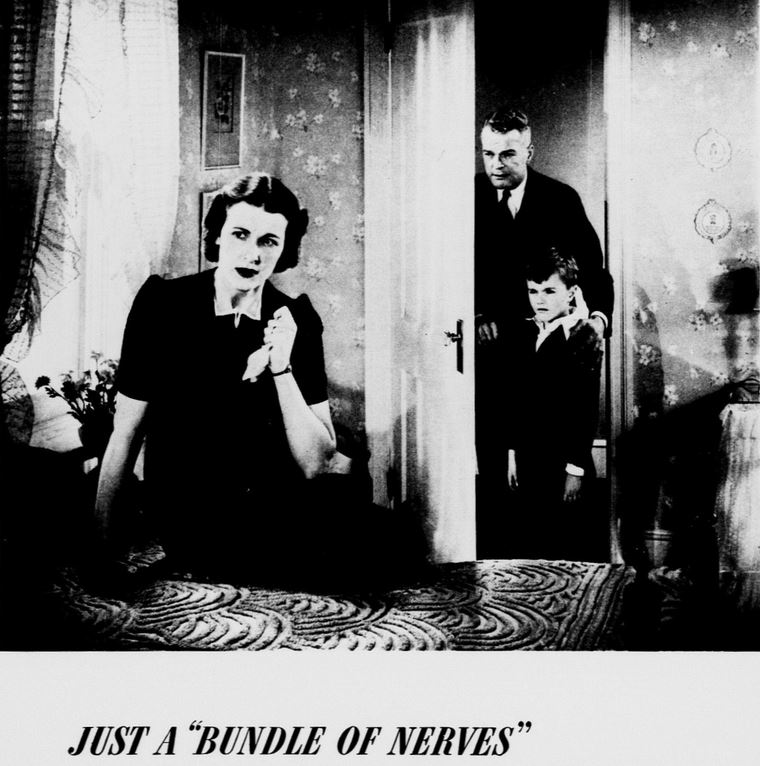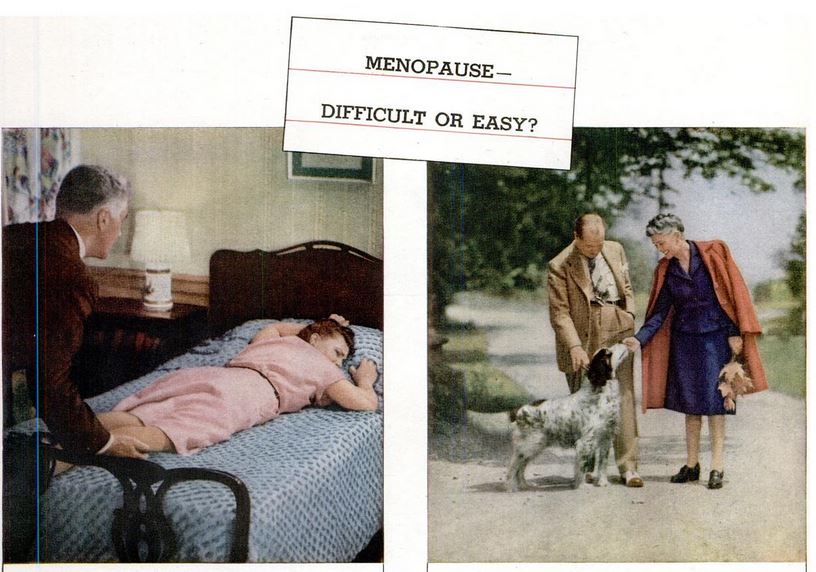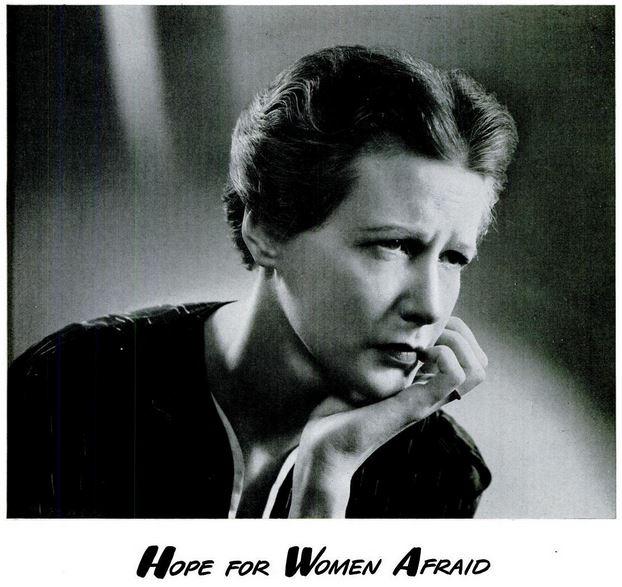Is menopause a medical condition that needs to be cured? That was certainly the message conveyed in a series of ads from Parke, Davis & Co. published in mainstream publications from the late 1930s through the 1940s. Just a bit of online research showed that the firm was a pioneer in offering estrogen injections in the US. The ads were designed to send women to their doctors to look for relief.
Hormonal therapy for menopause is still a controversial topic. Today, though, the subject is focused around women’s comfort versus the potential dangers of drug therapy. In these ads it is entirely centered around fear. There is no hint of what the treatment entailed.
What did women have to be afraid of? In the 1938 ad above, the earliest I found, the ad copy states: “The change of life is a difficult period for any woman. The changes taking place within her are often bewildering and alarming. She is likely to feel that her charm is gone and the best stages of her womanhood are past.” The solution—head to the doctor. “Your doctor can materially alleviate physical distress; can give comfort to the body and peace to the mind throughout the entire period of transition and adjustment.” There is nothing to indicate hormones or injections, just the logo for Parke, Davis & Co. at the bottom.

The ads imply that these unnamed measures would solve problems of depression.

They would also keep a woman from alienating not only her husband but also her children. The little boy in the picture above does not look happy.
Maybe the best news from these alarmist advertisements is that the oldest woman, the gray haired one in the 1945 ad at top, looks the happiest. Was that because of the drugs? Or was it the dog?




Or perhaps she is happiest because she is outside walking in the fresh air, rather than confined to her bedroom?
There’s still a lot of misinformation about menopause. To read newspapers and magazines, you’d think that every woman has an unpleasant, disruptive menopause, constantly dripping sheets of sweat, always out of sorts. That is not true for all women.
I expect this kind of advertising caused the fear instead of calming it. Like the coy and secretive advertising for menstruation products, and the denial of post partum depression in pregnancy marketing, this 20th century fear mongering about menopause set us back several hundred years. Apparently we still haven’t gotten over it!
I had no idea people were still so freaked out about menopause until I started reading blogs about how “no one talks about it” and doctors won’t treat it. That’s odd, because my friends and I have talked about it freely for 20 years, covering the pre-, during, and post-menopausal phases. Our mothers and aunts were open about it. Our doctors offered various options to deal with any discomfort. I’m not surprised it was such a big deal 80 years ago, but it shouldn’t be today.
80 — or even 40 — years ago, most doctors were male. Never having experienced menstrual cramps or post-partum depression (or the difference in an orgasm with and without a uterus…) they were often unsympathetic (or just embarrassed by their ignorance.)
Drug companies are still testing products intended for use by all genders on men only, for fear that female hormonal fluctuations will confuse their test results. If a blood thinner or any other medication is going to be influenced by women’s natural biology, you would think they’d want to know that before prescribing it to 51% of their patients….
It had to be the dog.
Maybe it was the dog and a husband with little hair and pants hitched up around his chest, but very stylish shoes.